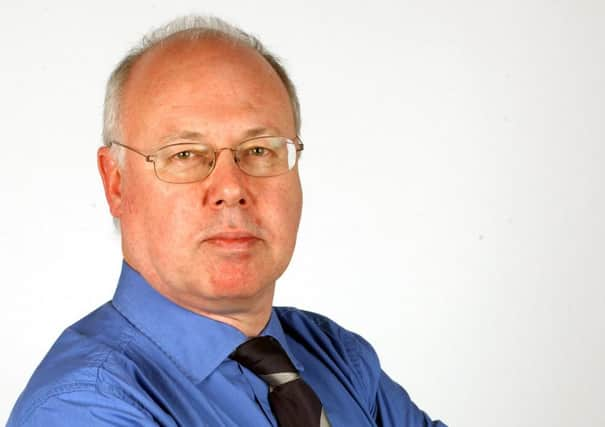Comment: Broadband television battle heats up


But in Britain’s broadband television war, upstart BT’s blitzkrieg tactics seem to have caught the BSykB defences off guard.
Yesterday BT reported pre-tax profits of £617 million for the last quarter of 2013, on increased revenues of £4.6 billion. This growth is down to the 2.5 million customers who have signed up for BT’s new TV sport channels. BT’s reinvention as a programme provider has also reduced “churn” – the number of existing customers switching to other telephone companies.
Advertisement
Hide AdAdvertisement
Hide AdIn the summer, BT’s position looked less secure. Chief executive Ian Livingston, who had masterminded BT’s exit from crippling debts, had quit to become a government trade minister. The company was also making a risky turn to becoming a pay-TV content provider in a business ruled by BSkyB, a past master at giving viewers what they want to see. And feisty TalkTalk was nibbling away furiously at BT’s core broadband business.
But attack seems to have proved the best form of defence for BT under ambitious new boss Gavin Patterson, who went to a Warrington comprehensive school and wears open collars. Patterson was originally hired by Livingston to transform BT’s staid culture. Clearly he has the populist touch to take on BSkyB. In November, Patterson stole the right to screen the Champions League, with a winning bid of £900m. Patterson has also signed up Andy Gray as a sports commentator – Gray was fired by Sky in 2011 after making sexist remarks.
The classic way to deal with a blitzkrieg is to let the attackers over-extend themselves. BSkyB boss Jeremy Darroch thinks BT has overpaid for its sports content and has steadied his own shareholders’ nerves with a 9 per cent increase in the interim dividend. With more than ten million subscribers, and some five million broadband customers, Sky has deep pockets and is using them. Darroch has just signed a five-year deal for the exclusive rights to the entire HBO catalogue, which includes top shows such as Game of Thrones. He has also gone into partnership with a resurgent ITV, which is to launch a new ITV Encore channel exclusively on Sky. This TV blitzkrieg is becoming is becoming trench warfare.
Carney’s comments more than lip service
GUESS who is coming to Edinburgh next week to speak at the Scottish Parliament? None other than Sir James Mirrlees, Nobel laureate and Scotland’s most famous living economist (if you don’t count the First Minister).
Mirrlees has another claim to fame. He was the academic supervisor for a certain Mark Carney, when the latter did his economics PhD at Oxford. Indeed, Mirrlees got a special (and laudatory) mention by Carney in his speech concerning Scotland and a potential sterling monetary union.
Carney’s reference to Mirrlees was more than the student paying homage to his tutor. Mirrlees is a key member of the Scottish Government’s Fiscal Commission, which produced a lengthy technical report outlining how a sterling union would work.
It is clear in any reading of Carney’s even-handed speech that he had read and digested the Fiscal Commission document. A lot of the London media up for the day to cover Carney’s Scottish visit had not heard of Mirrlees or, indeed, the Fiscal Commission. However, in the coded language that central bankers use, I suspect that Carney’s invocation of Mirrlees suggests he understands a sterling union is sensible and workable.